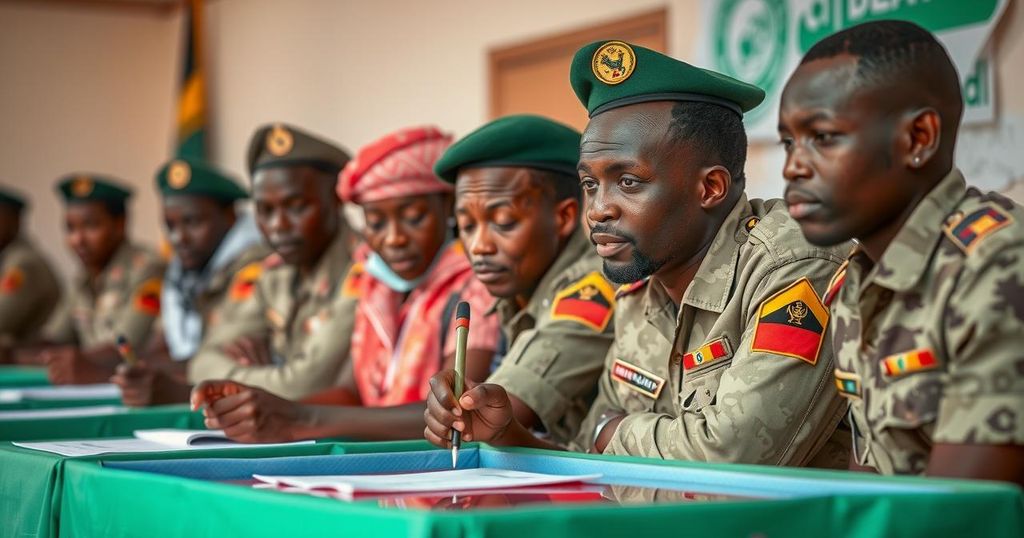Chad held a general election aimed at ending military rule, but turnout was low at 38%, with opposition calls for a boycott. Concerns around election integrity and skepticism about the process characterized voter sentiment. President Deby called for increased participation, yet many citizens expressed disillusionment with the electoral system. This election unfolds amid ongoing security threats and political challenges, reflecting a nation grappling with the transition to democracy.
Chad conducted its general election on Sunday, a pivotal event according to the government as it aims to mark the end of three years of military rule. However, voter turnout seems dismal, estimated at only 38 percent as opposition factions called for a boycott, asserting the process was predetermined. Election officials attributed the low participation to inclement weather, while the opposition leader Succes Masra claimed that the majority of citizens heeded the boycott call, leading many to remain at home. This boycott potentially benefits candidates supporting President Mahamat Idriss Deby Itno, who assumed power following a military takeover in 2021 and faced accusations of electoral fraud during the subsequent presidential elections.
Despite the boycott, Deby encouraged participation, describing the day as historic. Local sentiments echoed the lack of faith in the electoral process; one young voter termed voting as “pointless” due to the absence of genuine choice in Chad. Conversely, some individuals still sought change through their votes, calling for more jobs and fairness in the government. As for turnout among military voters, the election agency reported significant participation rates, asserting that local issues are critical in these elections. Opposition parties raised concerns over electoral integrity, claiming that ballot tampering occurred, thus drawing attention to systemic issues within the nation’s electoral framework.
This election unfolds amidst persistent security threats from Boko Haram in the region, a recent end to military agreements with France, and accusations of Chadian involvement in the Sudan conflict. The government presents this election as a crucial phase toward establishing a democratic regime after long-standing autocratic rule under Deby’s father. Overall, these elections highlight political tensions in Chad, characterized by a populace divided in its willingness to engage in a seemingly flawed electoral process.
Chad has faced a tumultuous political landscape over the past few years, marked by the military’s assumption of power following the death of long-time ruler Idriss Deby in 2021. The transitional government has been under scrutiny as opposition parties allege systematic fraud and manipulation within the electoral process. This election is viewed as a vital step toward transitioning from military to democratic governance, yet many citizens express skepticism over the legitimacy of such processes, leading to calls for boycotts and public disenchantment. Furthermore, ongoing security challenges from jihadist groups and regional conflicts complicate the political environment, further impacting citizen participation in electoral activities.
In summary, the recent general election in Chad is crucial in the country’s transition to democracy following a prolonged military rule; however, it has been marred by a low turnout due to an opposition boycott. Voter apathy reflects widespread skepticism about the legitimacy of the electoral process, as many believe that results are predetermined. The situation is further complicated by security threats and allegations of electoral fraud. This election serves as a mirror of Chad’s political struggles, highlighting the tension between government claims of democracy and the populace’s disillusionment.
Original Source: www.communitynewspapergroup.com






